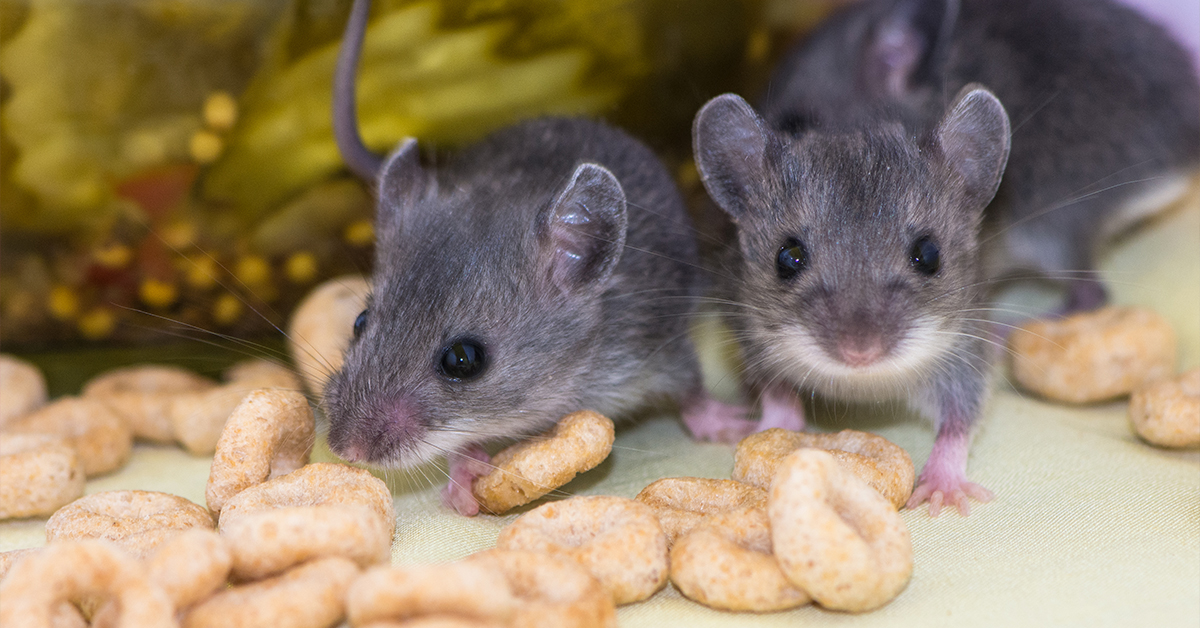No one wants to discover a rodent in their house. Mice and rats are unwelcome pests that contaminate food, carry diseases, and cause property damage. If you see a single rodent, you may wonder if there are more nearby… and if you may be dealing with an infestation.
The best prevention of an infestation is the proverbial pound of cure, so it’s wise to prevent rodents from entering your home in the first place.
How Many Rodents Are Considered an Infestation?
Because rodents tend to stay out of sight, it is difficult to know how many of them are inside your home at a given time. If you see a mouse or rat in your home, it is possible you have an isolated occurrence where a single rodent found its way inside.
Unfortunately, all it takes for an infestation to occur is the presence of one pregnant female. She can produce up to 10 separate litters of 14 babies each over the course of a year.
How Do You Know If You Have Rats Instead of Mice?
Rodent identification is fairly simple… if you actually see one of your invaders. Mice are typically smaller than rats. A mouse has a pointy nose, where a rat’s nose is rounded. Mice have narrow tails with a bit of hair and rats have wider, hairless tails.
Both rats and mice can be gray or brown in color, but only rats are charcoal or black. Because mice are naturally curious, you are much more likely to actually see one. Rats tend to be cautious and avoid being active when humans are present.
How Do I Find Where Rodents Are Coming From?
If rodents are lurking in your home, they will leave evidence near where they nest and feed. The most obvious signs – apart from an actual rodent sighting – are tracks and droppings. You may see gnaw marks on food, food containers, or even walls and woodwork.
Another signpost to a rodent’s location is nesting materials – like shredded paper and fabric, loose insulation, or even plant matter – where you would not expect to find it. You may even hear rodents scratching, chewing, or squeaking in your walls.
If rodents have been in your home for a while, you may notice unpleasant odors of urine and decay near where they are nesting. If you or anyone in your family has respiratory issues, these may worsen – as rodent urine, saliva, and feces exacerbate conditions like asthma and allergies.
To protect your home and family from rodents, you need to find out how they are getting indoors. To do this, you must perform a whole-home inspection to see where they’re entering. Rats and mice can enter through surprisingly small gaps in your roof, foundation, and around pipes or wires. Rats can crawl through holes roughly the size of a quarter, and mice can squeeze through cracks the size of a pencil eraser.
How Do You Prevent a Rodent Infestation?
The best way to prevent rodent infestations is to close off potential access points. Examine your home’s foundation, attic, crawl spaces, doors, and windows. Seal up any cracks you find… including gaps around entry points for pipes and wires. If you have soffits or chimneys, consider adding exclusion screens to prevent rodents from using those as entry points.
Next, walk the perimeter of your house to check for overhanging branches, fallen leaves, or other vegetation that can provide cover for rodents as they search for a way into your home. If you have a woodpile, relocate it away from your home’s foundation and walls.
Indoors, look for anything that provides a source of food or water for rodents. Clean your baseboards, cabinets, countertops, and floors often – wiping up spilled food immediately. Do not leave food sitting in the open. This includes pet food, which should be removed as soon as your pet has finished eating.
Check for sources of water that can attract rodents. Fix leaky sinks or pipes, and keep enclosed spaces – like basements, crawl spaces, and under-the-sink cabinets – well-ventilated and dry.
One of the easiest rodent control methods is to delegate these tasks to a pest control company with experience in rodent exclusion and elimination. Pest control professionals know what to look for, how to fix the problem, and how to stop a rodent (or two) from becoming a full-blown infestation.
Twin Forks Pest Control® is Your Rodent Elimination Expert
Twin Forks Pest Control® has been eliminating pests in and around East End homes for more than 20 years. We offer state-of-the-art rodent control with prompt, professional service. At the first sign of rodents in your house or on your property, call us for a free estimate.

